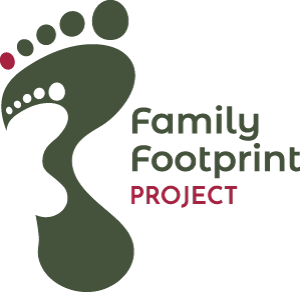Are you stockpiling soft plastics, waiting for soft plastic recycling to resume? I’m afraid you might be waiting a while. With REDCycle facing legal action, it could be a year or more before soft plastic collections resume in Woolies and Coles. In this post, I’d like to talk about the soft plastic recycling problem and what alternatives we have without REDCycle.
Recycling is Not the Answer
Australians are good recyclers. It seems we took to the soft plastic recycling offered by REDCycle through the supermarket chains with gusto. So much so that REDCycle is now under investigation for stockpiling soft plastics in several warehouses. This isn’t the first time recycled materials have been stockpiled and this latest failure is just further evidence of our broken recycling system. I’ve written before that I believe recycling is not the answer.
Plastic ‘Downcycling’
The first point I’d like to make is that, unlike glass and aluminium, plastic loses quality during the recycling process so it cannot be recycled infinitely. The soft plastics we have been dutifully dropping off at Coles and Woolies are actually ‘downcycled’. They are reprocessed into new items that cannot be recycled and will end up in a landfill at the end of their life. While it is certainly better to reuse the resources in our plastic bags, it is actually a bit misleading to call it recycling.
Advances are being made in plastic recycling with projects such as Samsara Eco who have developed a technology that can recycle plastic back into “virgin plastic quality” which will make the plastics infinitely recyclable. This is truly exciting news but it will be some time (if ever) until technologies such as these are able to reprocess the enormous volume of plastics we consume.

Turning Off the Plastic Tap
So what can we do with all our food packaging and plastic bags in the meantime? At our place, we initially thought we’d simply continue to collect our soft plastics and put them aside until the collection service resumed. We realised very quickly that this isn’t going to be feasible. It seems like this isn’t going to be a short service interruption and we don’t have a warehouse of our own to stockpile in. So, heartbreaking as it is, our soft plastics are going to landfill again. We’ve certainly noticed a big difference in the volume of waste to landfill we are creating. The bin is much fuller.
The thing we need to address is how we “turn off the plastic tap“.
At the household level, how do we reduce the amount of soft plastic we consume? How can we find ways to avoid buying plastic-wrapped goods and saying ‘no’ to plastic bags? Some things we do are to:
- use our own reusable bags at the farmer’s market or supermarket
- buy some items from our local ‘bulk goods’ store, The Source
- buy bigger packets of things so that the food-to-plastic ratio is higher
- look for products packaged in paper, cardboard or glass rather than plastic
- pick up sliced bread from the bakery in a reusable bread collection bag
- make some items such as pasta and crackers from scratch when time allows
- cut down on plastic-wrapped treats
- buy items (not food obviously!) secondhand

Demand Alternatives and Systemic Change
The truth is, though, we can only do so much with our buying habits. Sometimes there is just no alternative to purchasing a plastic-wrapped item. There is also a huge amount of soft plastic waste that occurs before we find the item in the stores. A friend who used to work for a big chain store said that every – individual – item of clothing came in its own plastic bag. Crikey! There is so much waste associated with our consumption that we are not even aware of. It is for this reason we need to petition governments and corporations to change the status quo of plastic use. Manufacturers need to change how they package our goods. Governments need to bring in bans on the use of soft plastics and fund research into and implementation of alternative soft plastic recycling technologies. We need to let them know that this is what we want.
If the REDCycle situation has shown us anything, it is that there is no easy and reliable solution currently to the problem of soft plastics. We need systemic change.
What do you think about the soft plastic recycling problem? What are you doing about your soft plastics at the moment? I’d love to hear.


